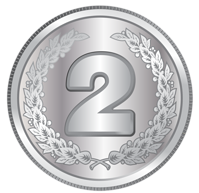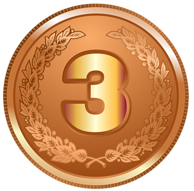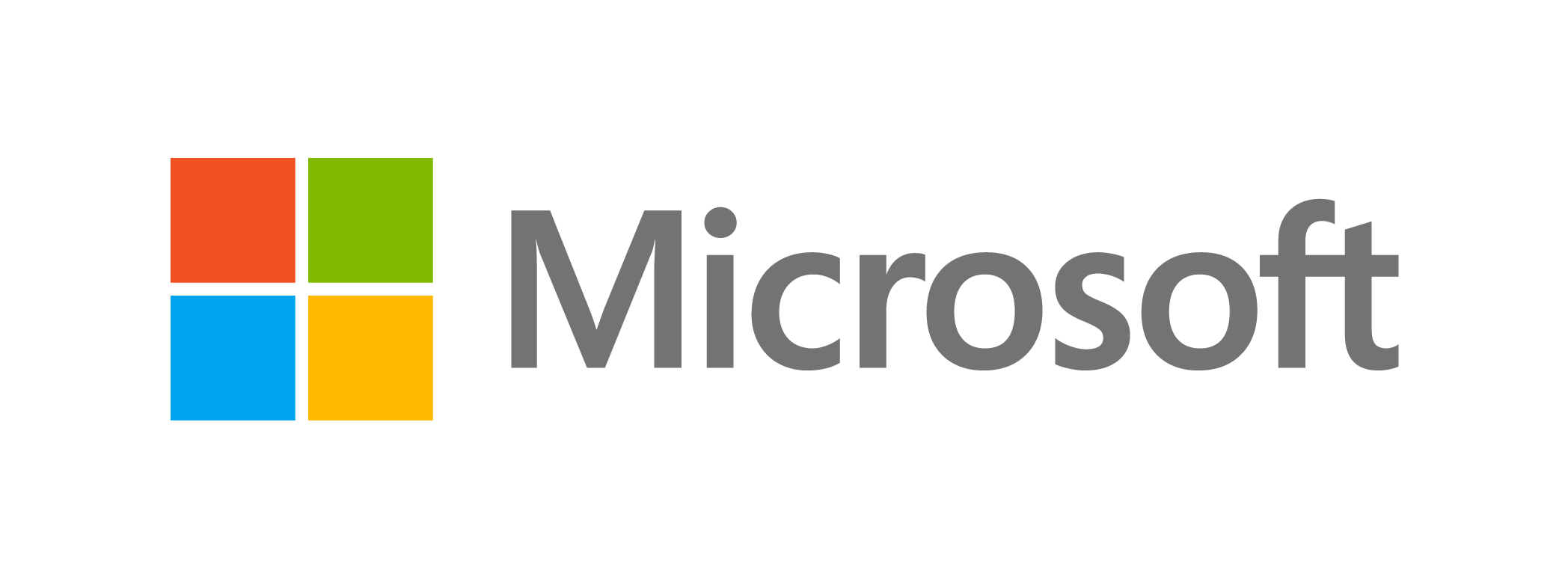Student Research CompetitionSPLASH 2017
The ACM Student Research Competition (SRC), sponsored by Microsoft Research, offers a unique forum for ACM student members at the undergraduate and graduate levels to present their original research at SPLASH before a panel of judges and conference attendees. The SRC gives visibility to not only up-and-coming young researchers, but also exposes them to the field of computer science research and its community. This competition also gives students an opportunity to discuss their research with experts in their field, get feedback, and to help them sharpen their communication and networking skills.
Accepted Papers
SRC Participants
2017 SPLASH ACM Student Research Competition Participants
You can find extended abstracts published in the ACM Digital Library here: https://dl.acm.org/citation.cfm?id=3135932
Competition Winners
Graduate category:
 David Leopoldseder
David Leopoldseder
 Daniel Lehmann
Daniel Lehmann
 Germán Ceballos
Germán Ceballos
Undergraduate category:
 Lukas Lazarek
Lukas Lazarek
 Piotr Padlewski
Piotr Padlewski
 Valerie Zhao
Valerie Zhao
All Participants
Graduate category:
- David Leopoldseder (Johannes Kepler University)
Simulation-based Code Duplication for Enhancing Compiler Optimizations - Germán Ceballos (Uppsala University)
How To Make Tasks Faster: Revealing The Complex Interactions Of Tasks In The Memory System - Oliver Krauss (Johannes Kepler University; University of Applied Sciences Upper Austria)
Genetic Improvement in Code Interpreters and Compilers - Guilherme Cavalcanti (Federal University of Pernambuco)
What merge tool should I use? - Nicholas V. Lewchenko (University of Colorado Boulder)
Computer-Assisted Specification of Asynchronous Interfaces with Non-Deterministic Behavior - Daniel Lehmann (TU Darmstadt)
Automatic Testing of Interactive JavaScript Debuggers - Ligia Nistor (Carnegie Mellon University)
Verifying the Proxy Design Pattern Using Object Propositions - Ankica Barisic (NOVA-LINCS FCT/UNL)
Framework support for Usability evaluation of Domain-Specific Languages
Undergraduate category:
- Valerie Zhao (Wellesley College)
Abstracting Resource Effects - Piotr Padlewski (University of Warsaw)
Devirtualization in LLVM - Haochen Xie (Nagoya University)
Principles, patterns, and techniques for designing and implementing practical fluent interfaces in Java - Monica Figuera (Universidad Simón Bolívar)
ZenSheet Studio: A Spreadsheet-Inspired Environment for Reactive Computing - Lukas Lazarek (University of Massachusetts Lowell)
How to Efficiently Process 2^100 Different Lists - Savannah Morgan (Centre College)
How Are Programming Questions from Women Received on Stack Overflow? A Case Study of Peer Parity
Call for SRC Participation

NEW Submission deadline: 7 August 2017
UPDATE: The dates of the 2 rounds of competition are posted below.
The ACM Student Research Competition (SRC), sponsored by Microsoft Research, offers a unique forum for ACM student members at the undergraduate and graduate levels to present their original research at SPLASH before a panel of judges and conference attendees. The SRC gives visibility to not only up-and-coming young researchers, but also exposes them to the field of computer science research and its community. This competition also gives students an opportunity to discuss their research with experts in their field, get feedback, and to help them sharpen their communication and networking skills.
In order to participate in the SRC, you have to fulfill the following requirements:
- Current ACM student membership
- Graduate or undergraduate student status (must be currently enrolled in a university or college) at the time of submission
- If selected, participants must register for the conference
If you meet the above requirements and want to participate, you must submit an extended abstract of no more than 800 words, and no more than 2 pages (excluding references) to: https://splash17src.hotcrp.com/.
NEW Submission deadline: 17 July NOW 7 August 2017
Your abstract should conform to the ACM SIGPLAN conference template, using the acmart class with the “sigconf” option, and it should be in 10pt font, and be submitted in pdf format. The research presented in the abstract has to be done on an individual basis for graduate students, but group projects are allowed for undergraduate submissions (one student must be chosen to present the work). The abstract should describe the research problem and motivation, background and related work, the intended solution approach and its uniqueness, results, and contributions.
Your extended abstract will be judged by a panel of judges, and you will be notified if you are accepted as an SRC participant to then attend SPLASH in Vancouver in October. If your abstract is accepted, you will have to prepare a poster to present in the first round of competition. Your abstract will also be published in the conference proceedings. The camera-ready version of abstracts will be DUE 28 August 2017.
AUTHORS TAKE NOTE: The official publication date is the date the proceedings are made available in the ACM Digital Library. This date may be up to two weeks prior to the first day of the conference. The official publication date affects the deadline for any patent filings related to published work.
Student Research Competition Process
There are two rounds of SRC competition that are held during the SPLASH conference, once your abstract is accepted, and a later grand finals competition:
First Round Competitions [Wednesday, October 25, in the evening.]
The first round is the Poster Session. This is your opportunity to present your research in the areas specified in the conference’s call for papers. Judges will review the posters and speak to participants about their research. The judges will evaluate the research (quality, novelty, and significance) and the presentation of the research (poster, discussion), and a group of semi-finalists will be chosen to present at the second round of the competition.
Second Round Competitions
[Thursday, October 26, during the last paper session.]
Semi-finalists continue by giving a short presentation (a ten minute presentation followed by a five minute question and answer period) of their research before a panel of judges, with a supporting Powerpoint presentation. Evaluations are based on the presenter’s knowledge of his/her research area, contribution of the research, and the quality of the oral and visual presentation. Three winners will be chosen in each category, undergraduate and graduate, receiving $500, $300, and $200, respectively.
The SRC Grand Finals
First place undergraduate and graduate student winners from the SRCs held during the year advance to the SRC Grand Finals. A different panel of judges evaluates these winners against each other via the web. Three undergraduates and three graduates will be chosen as the SRC Grand Finals winners. They are invited, along with their advisors, to the annual ACM Awards Banquet, where they receive formal recognition.
Travel Expenses
ACM’s SRC program covers expenses up to $500 for all students invited to an SRC. The kinds of conference expenses that are acceptable include:
- Transportation expenses (air, rail, bus, taxi, car service, car rental, parking); If you’re driving your own car, you can expense .53.5 cents per mile as of January 1, 2017. Please note this rate generally changes annually.
- Meals, hotel, tips
- Supplies for poster development, poster shipment, etc.
- Conference registration
Students will be reimbursed once we receive their SRC Travel Expense report form along with receipts for all expenses above $25.
Wed 25 OctDisplayed time zone: Tijuana, Baja California change
Thu 26 OctDisplayed time zone: Tijuana, Baja California change
15:30 - 17:00 | SRC 2nd Round: PresentationsStudent Research Competition at Prince of Wales Chair(s): Shan Shan Huang LogicBlox, Inc., Jennifer B. Sartor Vrije Universiteit Brussel | ||
15:30 15mTalk | Abstracting Resource Effects Student Research Competition Valerie Zhao Wellesley College | ||
15:45 15mTalk | Automatic Testing of Interactive JavaScript Debuggers Student Research Competition Daniel Lehmann TU Darmstadt | ||
16:00 15mTalk | Devirtualization in LLVM Student Research Competition | ||
16:15 15mTalk | How To Make Tasks Faster: Revealing The Complex Interactions Of Tasks In The Memory System Student Research Competition Germán Ceballos Uppsala University | ||
16:30 15mTalk | How to Efficiently Process 2^100 Different Lists Student Research Competition | ||
16:45 15mTalk | Simulation-based Code Duplication for Enhancing Compiler Optimizations Student Research Competition David Leopoldseder Johannes Kepler University Linz | ||